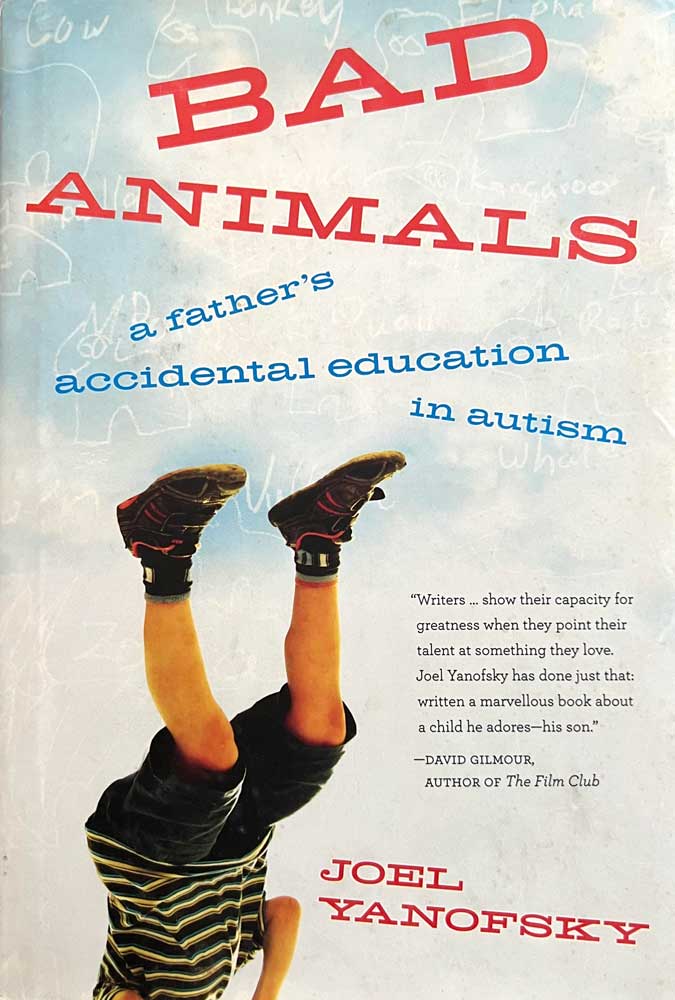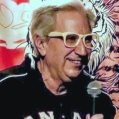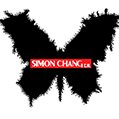Book Review: Honesty, humanity, humour in Yanofsky's Bad Animals
by Roanne Weisman
When they learned their son was autistic just before he turned four, the world of his parents, Cynthia Davis and the late Joel Yanofsky, turned upside down. Despair was a luxury they could no longer afford, said Yanofsky in a CBC interview. He also described how someone like him, a professional writer, tries to turn private troubles into public betterment, to create increased awareness and empathy, at least for autism. He has done just that in his extraordinary book Bad Animals; A Father's Accidental Education in Autism (published by Penguin Group, 2011). Yanofsky was well known as an accomplished writer of fiction, non-fiction, memoir, musical theatre and literary criticism.
 The book details the early chaotic years, before Jonah began attending a regular school with a “shadow,” a trained practitioner in Applied Behavior Analysis (ABA, a therapy for children with autism). Most of the book, however, is focused on Jonah’s experiences during the fifth and sixth grades. When he was 11, Jonah had progressed enough so that the shadow was no longer necessary, his academic performance had improved, he was learning Hebrew for his Bar Mitzvah, the tantrums had diminished, and he was working with his father to write a children’s book called Bad Animals.
The book details the early chaotic years, before Jonah began attending a regular school with a “shadow,” a trained practitioner in Applied Behavior Analysis (ABA, a therapy for children with autism). Most of the book, however, is focused on Jonah’s experiences during the fifth and sixth grades. When he was 11, Jonah had progressed enough so that the shadow was no longer necessary, his academic performance had improved, he was learning Hebrew for his Bar Mitzvah, the tantrums had diminished, and he was working with his father to write a children’s book called Bad Animals.
This is how the book ends, on a hopeful and positive note, but that is only one part of the whole story. Throughout the entire book, including the preschool and school years, Yanofsky gives parents an unflinching and fiercely honest narrative, filled with humanity, and garnished at the appropriate times with Yanofsky’s characteristic razor wit and loving humour.
Throughout the narrative, Yanofsky invites the reader into his mind and deepest emotions. He writes, for example. “The uninspiring everydayness of living with autism, its routine weirdness, its unbearable bearableness, its incremental ups and downs... what so often go[es] unstated. Memoirs skip this part. So, for that matter, do news reports and documentaries...How do you make it clear to readers that you are both coping and not coping at the same time? How can both things be true?” He also tries to explain “the tightrope you walk every day between despair and hope, embarrassment and persistence.” A professional book reviewer, Yanofsky also includes details and opinions about many books on the history and treatment of autism, including interviews with authors.
But even from the depths of despair, Yanofsky offers eloquent kernels about Jonah's growing intelligence, quirky sense of humour and charming personality. We read details about how Yanofsky and his wife juggle the ABA instructions as well as Relationship Development Intervention, a family-based, behavioral treatment model. At the same time, we also learn about Jonah's creative (and persistent) use of knock-knock jokes, his pointed criticism of Dr. Seuss, and his growing ability to understand and use sarcasm appropriately. (When to say “Yeah, right!” for example.)
We’re left wanting to know how Jonah has grown up, what he has accomplished, and how he has used the skills, gifts and tools – especially the humour of his late father and the unconditional love of his mother. This book is not only about autism, it is also about what really matters in life.







